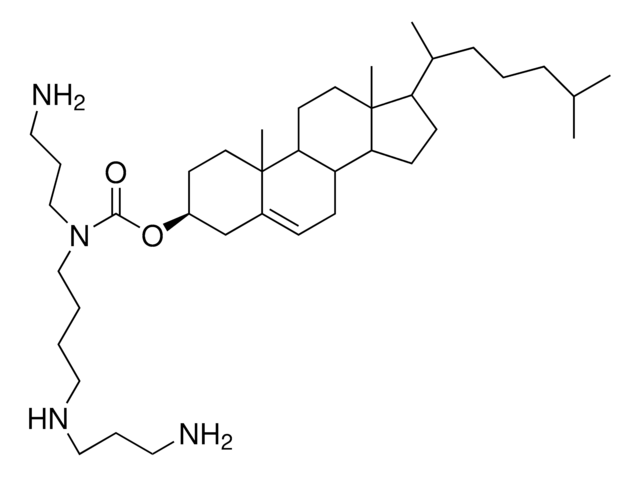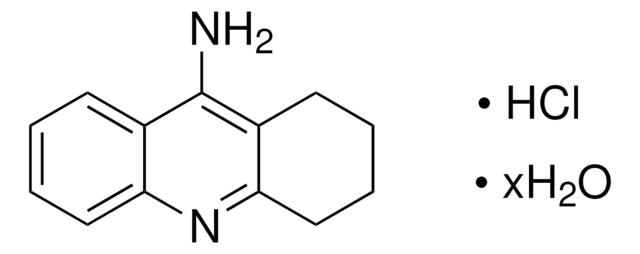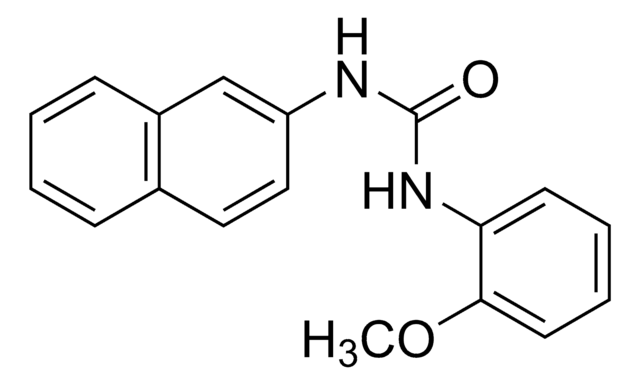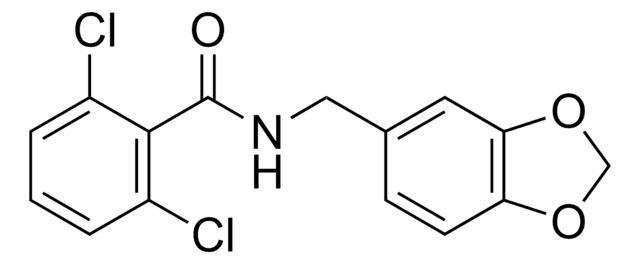890703C
Avanti
18:0 EPC (Cl Salt)
Avanti Research™ - A Croda Brand 890703C
Sinónimos:
1,2-distearoyl-sn-glycero-3-ethylphosphocholine (chloride salt)
About This Item
Productos recomendados
Formulario
liquid
envase
pkg of 1 × 2.5 mL (890703C-25mg)
fabricante / nombre comercial
Avanti Research™ - A Croda Brand 890703C
concentración
10 mg/mL (890703C-25mg)
tipo de lípido
cationic lipids
transfection
Condiciones de envío
dry ice
temp. de almacenamiento
−20°C
cadena SMILES
O=P(OCC[N+](C)(C)C)(OC[C@]([H])(OC(CCCCCCCCCCCCCCCCC)=O)COC(CCCCCCCCCCCCCCCCC)=O)OCC.[Cl-]
InChI
1S/C46H93NO8P.ClH/c1-7-10-12-14-16-18-20-22-24-26-28-30-32-34-36-38-45(48)51-42-44(43-54-56(50,52-9-3)53-41-40-47(4,5)6)55-46(49)39-37-35-33-31-29-27-25-23-21-19-17-15-13-11-8-2;/h44H,7-43H2,1-6H3;1H/q+1;/p-1/t44-,56?;/m1./s1
Clave InChI
ZVWMOQRUUFNEHD-UFOBXVRVSA-M
Categorías relacionadas
Aplicación
- to study its effect on the synergistic antimicrobial action of eugenol against Escherichia coli C600
- to test its use in the formation of lipid nanoparticle variants
- as a constituent of the microbubble formulation
- to prepare lipid monolayer for the study on the nature and orientation of interaction between graphene oxide (GO) and lipid models
Acciones bioquímicas o fisiológicas
Envase
Información legal
Palabra de señalización
Danger
Frases de peligro
Consejos de prudencia
Clasificaciones de peligro
Acute Tox. 3 Inhalation - Acute Tox. 4 Oral - Carc. 2 - Eye Irrit. 2 - Repr. 2 - Skin Irrit. 2 - STOT RE 1 - STOT SE 3
Órganos de actuación
Central nervous system
Clase de riesgo para el agua (WGK)
WGK 3
Listados normativos
Los listados normativos se proporcionan para los productos químicos principalmente. Para los productos no químicos sólo se puede proporcionar información limitada. Si no hay ninguna entrada, significa que ninguno de los componentes está en la lista. Es obligación del usuario garantizar el uso seguro y legal del producto.
EU REACH Annex XVII (Restriction List)
Elija entre una de las versiones más recientes:
Certificados de análisis (COA)
It looks like we've run into a problem, but you can still download Certificates of Analysis from our Documentos section.
Si necesita más asistencia, póngase en contacto con Atención al cliente
¿Ya tiene este producto?
Encuentre la documentación para los productos que ha comprado recientemente en la Biblioteca de documentos.
Nuestro equipo de científicos tiene experiencia en todas las áreas de investigación: Ciencias de la vida, Ciencia de los materiales, Síntesis química, Cromatografía, Analítica y muchas otras.
Póngase en contacto con el Servicio técnico










